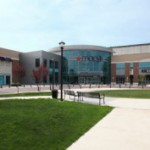New Jersey Future Blog
Washington Township and Smart Growth
April 17th, 2007 by Tim Evans
- The estimated average property tax bill in Washington Township increased by 84 percent between 1998 and 2004. This was the 14th-largest increase among all 566 municipalities in the state, and the biggest increase in Mercer County. (East Windsor Township is second in the county, and 36th statewide, with a 71.6 percent increase.)
- Washington Township’s property tax rate is not particularly high compared to other places; with an equalized rate of 2.09 percent as of 2004, the township ranked 177th among New Jersey’s municipalities, and its rate is down from 2.36 percent in 1998. The highest tax rates are generally found in struggling cities and older suburbs, like East Orange, Salem, Lindenwold, Trenton, and Hillside.
- Nor is Washington Township’s estimated average tax bill particularly high compared to other places. In 2004, more than 150 other municipalities had higher average bills, including five other municipalities in Mercer County (Princeton Township, Princeton Borough, West Windsor Township, Hopewell Township, and Pennington). Perhaps unsurprisingly, nearly all of these municipalities had either higher incomes or higher average residential values than Washington Township. More than 100 of them outranked Washington Township on both measures. Clearly, wealthier places tend to spend more on government services on a per-capita basis, and tax themselves accordingly.
- In terms of estimated average property tax bill as a percent of income, Washington Township is also not particularly strapped. In fact, it doesn’t even rank in the top half of the state’s municipalities on this measure of tax “burden”. The places with the highest tax bills relative to their incomes tend to be poorer places like Paterson, Elizabeth, Passaic, Orange, East Orange, Irvington, New Brunswick, Bayonne, and Asbury Park. Even in Mercer County, there are five municipalities with a higher estimated average tax burden: Hightstown, West Windsor Township, East Windsor Township, Hopewell Borough, and Ewing. So in terms of their ability to pay their tax bills, Washington Township residents have it easier than a lot of other places.
- Washington Township’s rapidly-rising tax bills are probably related to its rapid population growth. Between 1998 and 2004, the township’s population grew by 32 percent, the 24th-highest growth rate among all 566 municipalities. Notably, many of the other fast-growing municipalities in the state saw their average property tax bills rise nearly as fast or faster than Washington Township’s over the same period, including Egg Harbor Township in Atlantic County, Woolwich and Harrison townships in Gloucester County, Mansfield Township in Burlington County, and Upper Freehold Township in Monmouth County. Since none of these townships has built a new downtown along the lines of Washington’s Town Center, it is questionable whether Washington Township’s rising tax bills can be blamed on the Town Center; other evidence (including the widespread resistance to school children, whether in a “town center” or otherwise) suggests that the culprit is simply population growth itself.
What’s Behind the Rising Tax Bills?
So while Washington Township does not have a particularly high property tax burden relative to average income or home value, their bills have been rising a lot faster than most other places in the state. The key question is what we can learn from the experience in Washington Township, and whether these increases can be tied to smart growth or town centers.
In short, the simple answer is no. Center-based growth does not necessarily trigger tax increases and can actually achieve the opposite result. Most significantly, the timing and composition of a new center will determine its financial characteristics. Washington Township has several characteristics that have driven a particular financial outcome: a preponderance of single family homes and larger residential units, delayed commercial and retail development, and no transit station to help support commercial and residential ratables.
Washington Township is feeling the pressure from adding new residential units both within and outside the center, without the parallel development of key commercial and retail components of the center. The nature of town centers argues for a business component; businesses are, after all, what define a “downtown.” Revenue from the commercial and retail components of any center will help to defray the school costs generated by the residential component, but Washington Town Center’s nonresidential side is as yet unrealized, accentuating its tax problem. Moreover, the design and mixture of residential units should also be understood to gain an accurate appraisal of fiscal impact, because smaller garden apartments, for example, are less likely to be attractive to families with children than larger units or single family homes. But it is important to remember that the design of the center itself is not the problem—and in most cases, municipal costs associated with serving center-based growth are less than serving developments spread out over the landscape.
Yet we should not overlook the clear challenges presented by the Washington Town Center, in terms of its power to attract new families to the township. New Jersey’s antiquated property tax system, which relies on property taxes to fund local services more than almost any other state in the union, creates a direct disincentive to build housing for families. High housing prices, driven significantly by a lack of supply, make it difficult for people to live and work in New Jersey. New Jersey’s economy is under threat if we are not able to attract and retain families. To respond to this threat, New Jersey Future supports serious consideration of the “Jersey Homes” program to subsidize net school costs for new developments that are located in the right places and that features mixed-use, pedestrian-friendly designs.
How The State Can Help
Moreover, the delay of commercial and retail development in Washington Township is significantly caused by an inability to resolve critical questions over transportation improvements with the New Jersey Department of Transportation and a neighboring municipality. If the state seeks to encourage new centers and transit villages in the future, this lack of clear support is counterproductive. The state should purposefully make decisions to support the development of centers in a timely fashion, not the reverse.
Washington Township’s story does demonstrate that there is significant demand for the type of housing offered in a center-based development. For many years, critics of smart growth argued that if buyers wanted center-based growth, it would already have happened. We know, however, that zoning laws govern what is built in a municipality, not the market. Many municipalities have zoning that prohibits town centers. People, young families, professionals, and seniors alike want to live in reconstituted neighborhood centers. New Jersey needs more of this housing, and the associated jobs, libraries, parks, senior centers, restaurants and playhouses—today.
If you have any questions about this issues of Future Facts, Tim Evans, Director of Research.
















